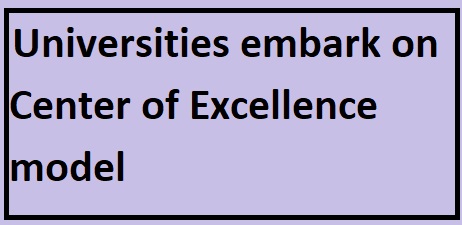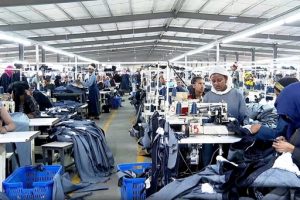
BY MEHARI BEYENE
ADDIS ABABA–There should be some form of center of excellence to prop an innovation ecosystem, job creation and talent search purposes, so disclosed a scholar in the field.
Information Communication Technology Specialist Yilkal Abate said that the center will integrate teaching, research, and innovation where world-class skills are taught to undergraduate and graduate students.
Besides, research that targets at solving problems in the various sectors needs to be conducted. The center for excellence will be selected through a nationwide competition and funded for a period of 5 years with a potential extension.
Each center will either be interdisciplinary in nature by covering several interrelated challenges revolving around food and water security, healthcare, urbanization, renewable energy, advanced manufacturing and digital economy.
He pointed out that the current Center of Excellence models at Addis Ababa and Adama Science and Technology Universities are the best startups. There should be a vigorous funding approach to these centers based on a competitive grant application process and creating multi-institutional ecosystems that link Generation I, II, and III universities together with industry, government, and secondary schools since building a collaborative interrelationship for the common good will offer a sustainable and more impactful model.
He further indicated that such competition-based centers of Excellence model will provide Ethiopian academics, professionals, and innovators from within and abroad with an engine for world-class talent training, innovation, entrepreneur-led job creation, and intellectual property development.
Adama Science and Technology University (ASTU), which is already quite involved in interfacing with the manufacturing industry, could lead toward the center of excellence in advanced manufacturing and fostering Ethiopian emerging market conditions.
He noted that the Center activities will help provide students with opportunities for researches and training in multi-disciplinary areas in a bid to strengthen collaboration among universities and research institutions globally and consolidate research infrastructure like computational tools, specialized laboratory equipment, among others.
In addition to government sources, funding models can be based on exploring domestic or international partnerships with major global IT companies, he added.
Investing in such an institute would not only help curb pandemics such as COVID-19, but also would help redesign health systems that could withstand such epidemic shocks. Several institutions of higher learning in the US and elsewhere are interested in Ethiopia and, in some cases, have already established long-term strategic commitments.
For example, Harvard, Emory and Brown universities in the US and others from the EU and UK are engaged with universities in Ethiopia in health related topics.
He further mentioned that Adama Science and Technology, Dire Dawa, Dilla, and Gambella universities will enhance knowledge exchange through study abroad programs, joint research initiatives and signature courses or programs.
Such a bold move could help attract international students and Ethiopians living abroad to come to Ethiopia. It also has a potential to internationalize local campuses, enhance the quality of infrastructure thereby increasing their global status as learning and research institutions.
The Ethiopian Herald February 21/2021




